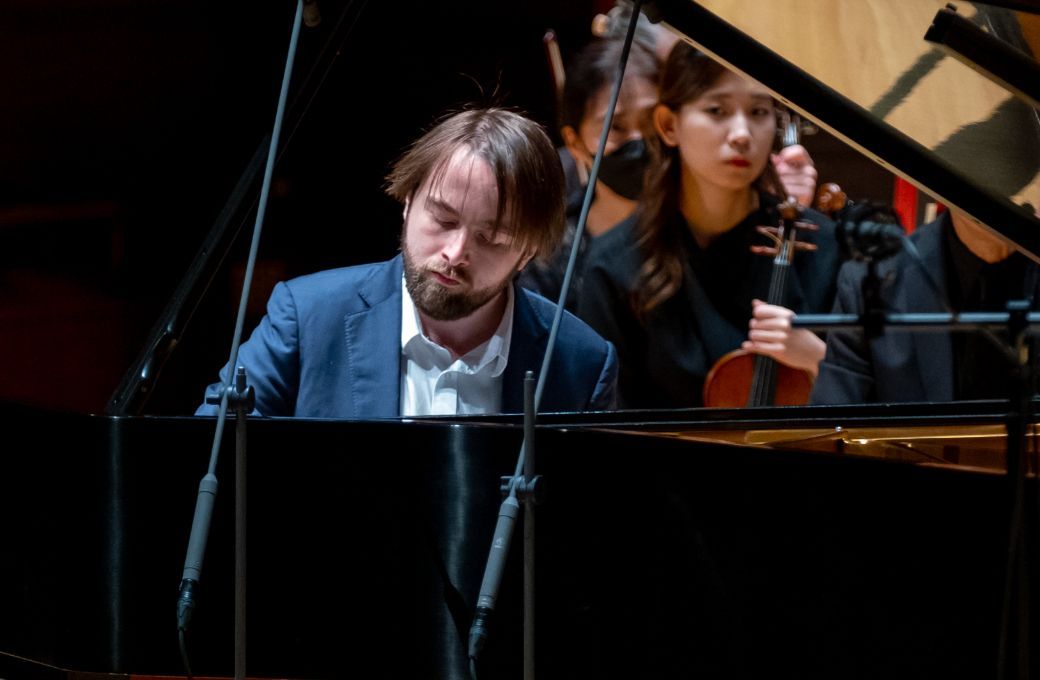A ravishingly beautiful Elegy by Ukrainian composer Mykola Lysenko – performed as an encore by one of the great pianists of our time, Daniil Trifonov – was for many a highlight of this weekend’s thoroughly satisfying Philadelphia Orchestra concert featuring Yannick Nézet-Séguin conducting a high-energy program of works by Coleman, Liszt and Dvořák.

Still only 31, although he seems to have been around forever, Trifonov is a Franz Liszt for our times, a pianist of dazzling technique, personal charisma and mature comprehension, qualities he fully displayed in the Piano Concerto no. 1 in E flat major. The orchestra made a strong impression with its opening attack, quickly followed by the piano’s assertive reply. And what splendid pairings Trifonov made, along with Ricardo Morales, principal clarinet, and David Kim, concertmaster, creating the effect of a heavenly trio in the first movement. Trifonov’s take on the second movement theme was as cool and refreshing as an early autumn breeze. Is it my ear or does he really make individual notes grow louder and softer as though they are breathing? The work proceeded with as much wizardry from the indefatigable conductor as by the soloist in a carefully thought-out musical labyrinth. Like the other two orchestral works on this program, Nézet-Séguin’s take on the Liszt concerto ended with high volume and the excitement of racing to the finish line.
The program opened with Umoja, Anthem for Unity, a work by Valerie Coleman, the composer, flutist and founder of Imani Winds. Umoja is Swahili for “unity” and is the first day of the African Diaspora holiday, Kwanzaa. While the composer indicates the joy of unity in families and communities, I also heard in its strains the dawn of a new day, from the first hints of sunrise in the silvery frost of woodwinds to daylight flooding a landscape as expressed in the many voices of a full orchestra. This work is marvelously orchestrated with a wide assortment of percussion instruments and a purposeful sense of development as the work pitches toward a stunning conclusion.
The concert ended with Dvořák’s massive Eighth Symphony, a veritable Bohemian folk festival of a work with lilting dances and hummable tunes. Many of those not hearing this for the first time no doubt licked their lips with anticipation during the slow sweet dénouement in the fourth movement, knowing that a spectacular conclusion was on its way. They were not disappointed. Nézet-Séguin, wielding his baton like a saber at the charge, pulled out the stops in a thrilling finale.
And yet, what lingers most with me is the gentle touch of the Ukrainian encore for solo piano: a mixture of solace, grace, and subtle virtuosity. Totally removed from the world of feverish pitches and hyperactivity, of Instagram and influencers, Trifonov—a young man at a keyboard—paints a world of colors and ideas in this brief selection. The struggles of the Ukrainian people are long and storied, a subtext for this exquisite music so gallantly played.


